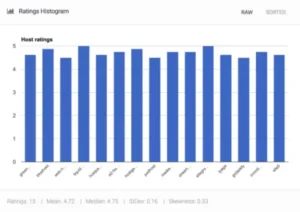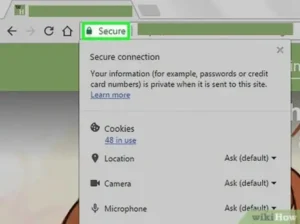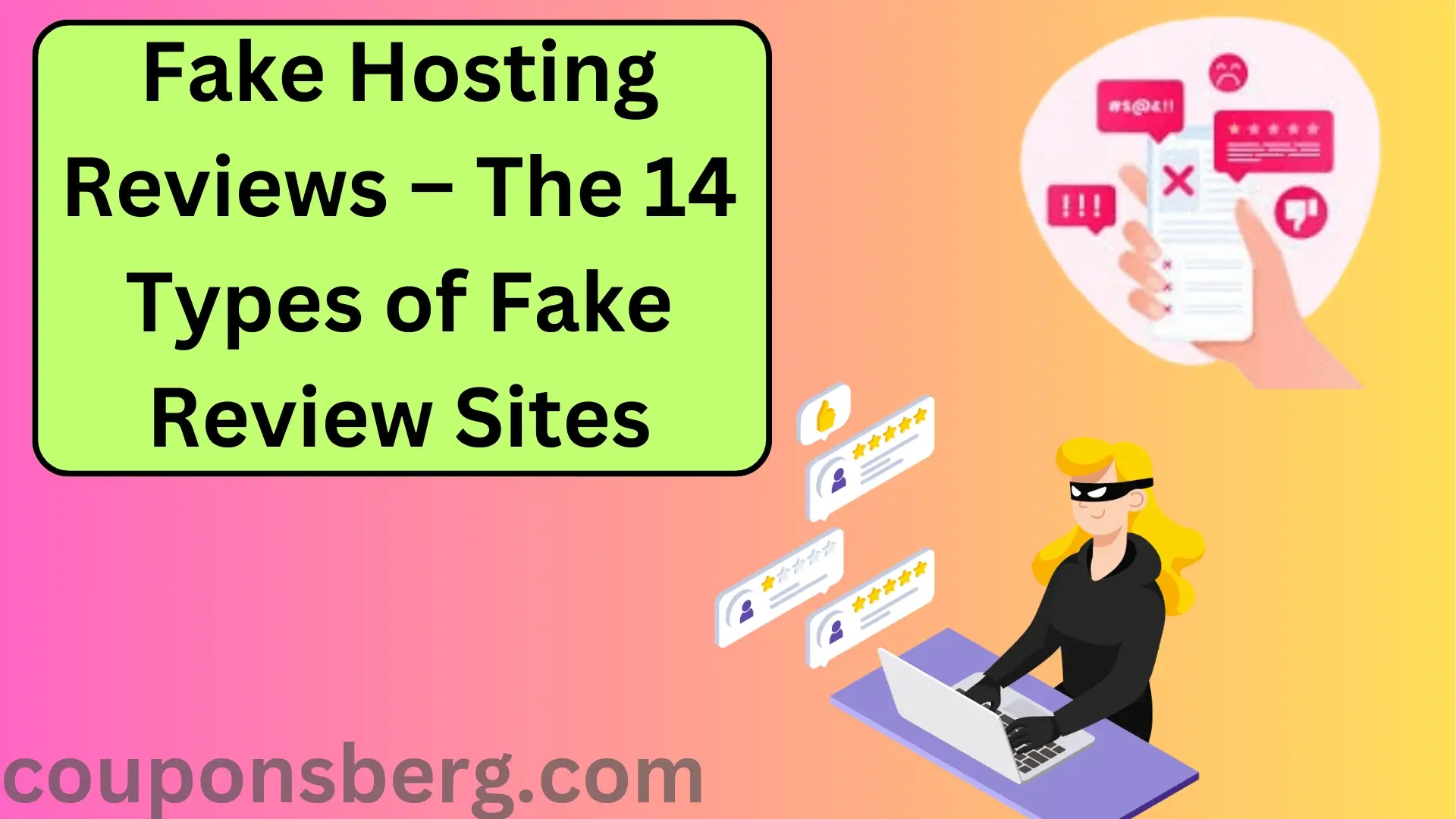Fake Hosting Reviews : The Internet is unquestionably a fantastic tool. It is a global resource that is accessible from any location. You may think of it as a massive library that has knowledge on anything and everything.
But there is a lot of false information, fake data, and fake review sites because this specific library is essentially uncontrolled. Web hosting sites are one subject that has been the frequent focus of false and misleading information.
When was the last time you looked up reviews on the internet before making a purchase or scheduling an appointment? Most likely, it wasn’t too long ago. Online reviews have grown in importance as a useful tool for customers evaluating the reputation and calibre of companies and goods in the current digital era.
BrightLocal conducted a poll which revealed that 84% of consumers trust online reviews as much as personal recommendations, with 91% of consumers reading them. But not every internet review is made equal. It is getting harder and harder to tell the difference between real and phoney reviews as they proliferate.
I am aware that locating trustworthy hosting for your website might be difficult. Furthermore, it can be quite difficult to tell which evaluations are authentic and which are just fraudulent with so many options accessible. I’ll attempt to give you thorough guidance on how to identify phoney hosting reviews and select a genuinely trustworthy hosting company in this post.
What Are Fake Hosting Reviews?
Reviews of fake hosting are those that are written purely to disparage a rival hosting company or to promote one themselves. False information and biassed opinions are common in these reviews. They can be posted on a number of websites, such as blogs, forums, and social media. Regrettably, these fraudulent evaluations have the ability to mislead prospective clients into selecting a subpar hosting package by creating false expectations and disappointment.
Why Are There So Many Fake Reviews?
The fact that it’s a rather profitable industry is the main cause of the abundance of phoney reviews. Many web hosting companies provide a charge (which can range from $50 to $200) for every referral that signs up for one of their services.
Some of the most popular hosting affiliate programs:
Affiliate Programme for WPEngine ($200 for each sale)
Bluehost Affiliate Network: 65-120 dollars for each sale
Affiliate Programme for Siteground ($50–$125 per sale)
Affiliate Programme for Hostgator ($50 for each sale)
Affiliate Programme for A2 Hosting ($85-$140 per transaction)
Affiliate Programme for Hostinger: 60% commission on each sale
It’s nearly hard to locate hosting without ending up on an affiliate website due to the large compensation. Their sole objective is to get paid by the web hosting they are endorsing, and they will stop at nothing to do that.

Reviews and recommendations on web hosting review sites may also be biassed, favouring or endorsing websites that offer the biggest payouts. This explains why many of the evaluations on these websites aren’t even from real people. In order to attract more users, a web hosting platform may even possess a review site where they consistently promote themselves as the best option.

Web hosting sites may create a lot of evaluations if there is no payment involved in order to improve their SEO. This may be especially true for smaller or more recent web hosting platforms that want to grow their clientele but lack the funds to compensate affiliates in the same way as more established businesses.
These evaluations have been meticulously designed to focus on particular phrases in order to optimise search terms and dominate search engines. In the beginning, in an effort to generate interest and credibility, new web hosting firms may also fabricate a large number of phoney reviews.
Affiliate websites may employ cookies in both of these ways. Even if you don’t click through with cookies that are installed on your computer after reading a review that used SEO to grab your attention, the website that created the review still gets paid as an affiliate once you choose your web hosting.
However, this can work against them because they risk losing their search engine rankings if Google or other search engines discover they are using them.
It’s also important to note that web hosting sites that offer awards should be avoided. Frequently, the businesses offering the biggest affiliate payouts receive prizes.
How to Spot Fake Hosting Reviews?
Although it might be difficult to identify fake hosting reviews, there are a few warning signs to watch out for. A prominent indicator of a phoney review is its lack of specificity. A review could be fraudulent if it is brief and offers no particular details regarding the hosting company. A significant amount of favourable reviews that are all posted quickly is another indicator. This can mean that the hosting company is fabricating reviews to make them appear better.
Basically, you can identify phoney hosting reviews like this:
- Seek out in-depth evaluations: Sincere evaluations frequently include comprehensive details regarding the capabilities, effectiveness, and customer service of the hosting company.
- Verify the review date : Fake reviews can surface in big numbers quickly. Seek out reviews that have been up for a longer amount of time.
- Examine the reviewer’s biography: Sincere reviewers frequently have a track record of evaluating a range of goods and services. Typically, fake reviewers have one or two reviews.
- Look for inconsistencies: Inconsistencies, such as contradicting information or excessively praising language, can be found in fake reviews.
- Examine several sources: Examine a variety of sources to obtain a more comprehensive understanding of the hosting provider’s standing.
Watch Out For These Similarities Of Fake Review Sites:
- Absence of Data: If their statements aren’t supported by concrete statistics or precise information regarding the operation of web hosting.
- Information that has been copied and pasted from the online hosting sites is called a copied review. A review is most likely an advertisement if it sounds that such.
- Overly Positive: If the evaluation is excessively positive and exaggerated. It could also be done to offset negative reviews.
- If there is no proof that a reviewer is a real person, they can be anonymous or provide no information.
- Overly Negative: When a reviewer solely focuses on criticising a rival rather than analysing the goods under consideration.
- Not Hosted Themselves: In the event that a review highlights the website on which they are hosted, you should verify.
- No Traffic: When the quantity of reviews on the site is smaller than the traffic.
The 14 Types Of Fake Hosting Review Sites:
1. The “Claims” Review Site
For anyone attempting to lure you into registering with a web server, this is sometimes an easy one to write. Hard facts or independently verified data are absent from them. It’s all just assertions made in open-ended statements. To put it another way, a website is fraudulent if it sounds like a used car advertisement and contains claims like “We will outperform our competition” or “Everyone who signs up with us is a satisfied customer.” Quite boring, huh? This review isn’t phoney because it lacks any true substance.
2. The “Copy & Paste” Review Site
Any web host review website that replicates the identical material of the host website verbatim should be obvious, as if the first one wasn’t simple enough. Yes, by using the precise text of the site host, copying and pasting removes the possibility of making a mistake. The problem with this is that data may be copied and pasted from any equipment website and presented online as reliable research. This one is not to be trusted.
3. The “Generic Customers” Review Site
This fraudulent web host reviews site can be identified in a number of ways using customer data. Yes, it might include a few of genuinely amazing, well-written testimonials from satisfied clients. Check for these specifics, though. Are the reviews from customers indicating that they are from “verified purchasers”? Does the customer review contain an IP address or domain that can be verified? When visiting these phoney websites, there are two warning signs that ought to be feverishly waving in your face.
4. The “Top 10” Review Site
Come on, we’re not so dumb after all. You can tell you have a fake website anytime you come across a web host review site that lists their Top 10 Best Web hosts For Features or whatever other criterion they’re using this week. To be exact, you will be staring at a phoney website on your computer screen if the Top 10 does not contain any actual facts that may be compared amongst selections. Once more, this one is simple to put together and contains minimal information.
5. The “Hosting Directories” Review Site
On a directory listing, this might seem like a useful approach to find out about various web host sites, but proceed with caution. It’s only one of several tricks employed to make the data seem authentic. If the directory only includes a small number of web hosting firms, it is one very strong indicator that your website is fraudulent. A directory of this type needs to include thousands of distinct web hosts in order to be effective. An impossible objective for a phoney website to do.
6. The “One Review Only” Review Site
When you find a web host review site that only lists one firm, you might believe you’ve struck gold. It can take the form of a one-page website or a website with several pages praising Webhost A exclusively. It can even appear as though Webhost A and Webhost A alone is the main sponsor of the entire show. That won’t happen; instead, it will be just another phoney review website.
7. The “Keyword Target” Review Site
If your English is passable, these are quite simple to find among the sea of unreliable websites. They can be easily recognised by reading any paragraph and seeing that although the syntax flows smoothly, Web host A is frequently referenced together with other terms and phrases associated with web hosting. You can tell you have a poorly constructed website masquerading as a fake site whenever you see terms that stand out like sore thumbs.
8. The “Awards Site” Review Site
Of course, you would want to boast about your product a little bit online if you got an award for anything amazing about it, wouldn’t you? One issue with web host review sites that offer prizes is that some of the awards are fictitious, questionable, and just as fake as the web host review site itself. When looking for web host review sites, the only true “award” to be considered is where they appear in your search engine results.
9. The “Customer-Based” Review Site
Have you ever come into someone’s personal blog site while browsing what appeared to be a rather elegant website with web host reviews? When trying to sort through the legitimate review sites from the phoney ones, this is a dead giveaway. It can appear genuine at first, but if you examine more closely and notice additional entries on unrelated subjects like the weather, food prices, and bitcoins, it’s likely just some person with a phoney review website.
10. The “Gimmick” Review Site
You have to acknowledge that gimmicks only continue to exist because they all enjoy a certain degree of success. Scammers are becoming increasingly skilled at their craft because to the Internet, which allows them to put new spins on time-tested tricks. In essence, a gimmick is a type of bait used to entice you to click on or react to something you read or see on a website. A fool is born every minute; avoid becoming one of them.
11. The “Freelance Writer” Review Site
It’s not always simple to recognise this one. In essence, the proprietor of the website has hired a freelance writer on an independent basis to write articles about the web hosts. At best, there is very little chance that the writer have the knowledge to create content that is presentable. Such a place can go unnoticed to the inexperienced eye. On the other hand, someone with in-depth understanding of the subject will be able to identify the phoney right away.
12. The “Redirect” Review Site
When you see the addresses in the address bar at the top of the page on your computer screen, do they ever flash and flicker? Not every URL can be trusted. Fake review sites that redirect you can be easily identified by the fact that when you enter the website address, the page loads and then goes to one or more alternative URLs before loading correctly. Although many people utilise this trick, you can quickly identify the phoney activities if you know what to look out for.
13. The “I’ll Never Use Their Service Again” Review Site
Have you ever observed that, in an effort to “out” a certain company, there are very few, if any, web host review sites that highlight its shortcomings? There isn’t a true resource on terrible web hosts, although there are some unfavourable evaluations put online by “verified purchaser” type sites where certain web providers get a little roughed up. It’s most likely not a phoney review website if you ever come across one that lists the “Top 10 Worst Web hosts Online.”
14. The “Get Paid To Review Us” Review Site
Recall our last discussion regarding gimmicks? This is most likely one of the most popular ones available. It’s possible that the only way this service can receive positive evaluations is by paying you for one. That ought to provide you with some information about that specific business or service. Offering incentives to customers is fine, but providing a direct bribe in exchange for a positive review indicates that the product is either subpar or fails to live up to expectations.
How Do You Know If A Review Site Can Be Trusted?

You may search the Internet with one piece of knowledge now that you know how to recognise and identify the most blatant violators of the phoney review site policies. that not every information you discover online is accurate or supported by the brand or item being discussed.
A review may only be considered 100% reliable if it is hosted on a website that neither the reviewer nor the site receives anything for the affiliation. Sadly, it’s not easy to locate. Here are two methods to determine whether a review is reliable:
- Balance: There is a good mix of both positive and negative evaluations on the review website.
- Study: Never rely solely on one website or review. Look about and read reviews on several websites.
- Follow Your Instincts: If anything seems too good to be true, it most often is.
The only thing you can do if you come across one of these phoney review websites is avoid clicking on any of the links within. The fraudsters are paid in this way: by referring you to the site hosts via an affiliate link.
Over time, if enough people stopped believing the scammers, they would finally vanish. I’m hoping.
GET MORE INFORMATION VISIT ON……..Couponsberg.com
FAQs : Fake Hosting Reviews
1. What are fake hosting reviews?
Fake hosting reviews are misleading or false testimonials about web hosting services, often created to deceive potential customers. They can be written by competitors, the hosting companies themselves, or paid reviewers, and they usually aim to manipulate public perception and influence purchasing decisions.
2. How can I spot a fake hosting review?
Look for the following signs:
- Overly positive or negative tone: Reviews that are excessively glowing or harsh may be suspicious.
- Generic language: Vague comments that lack specific details about the hosting experience.
- Repetitive content: Multiple reviews with similar wording.
- Reviewer history: Check the reviewer’s profile for a pattern of reviewing the same types of products or no other reviews.
- Date clustering: A large number of reviews posted within a short time frame.
3. Why do companies use fake hosting reviews?
Companies use fake reviews to enhance their reputation, attract more customers, and increase sales. Positive fake reviews can make a hosting service appear more reliable and trustworthy, while negative fake reviews can damage a competitor’s reputation.
4. Are there legal consequences for posting fake hosting reviews?
Yes, posting fake reviews can lead to legal consequences. Many countries have laws against deceptive advertising and unfair business practices. Companies found guilty of posting fake reviews may face fines, legal actions, and damage to their reputation.
5. How can I find reliable hosting reviews?
- Look for reputable sources: Trust reviews from well-known tech blogs, industry experts, and consumer advocacy websites.
- Check multiple platforms: Compare reviews from various sites like Trustpilot, Google Reviews, and Reddit.
- Seek detailed reviews: Look for reviews that provide specific information about the hosting service, including uptime, customer support, and performance.
6. What should I do if I suspect a review is fake?
- Report it: Most review platforms have a mechanism to report suspicious reviews.
- Do more research: Verify the information in the review with other sources.
- Share your concerns: Post about your suspicions in forums or social media groups to alert others.
